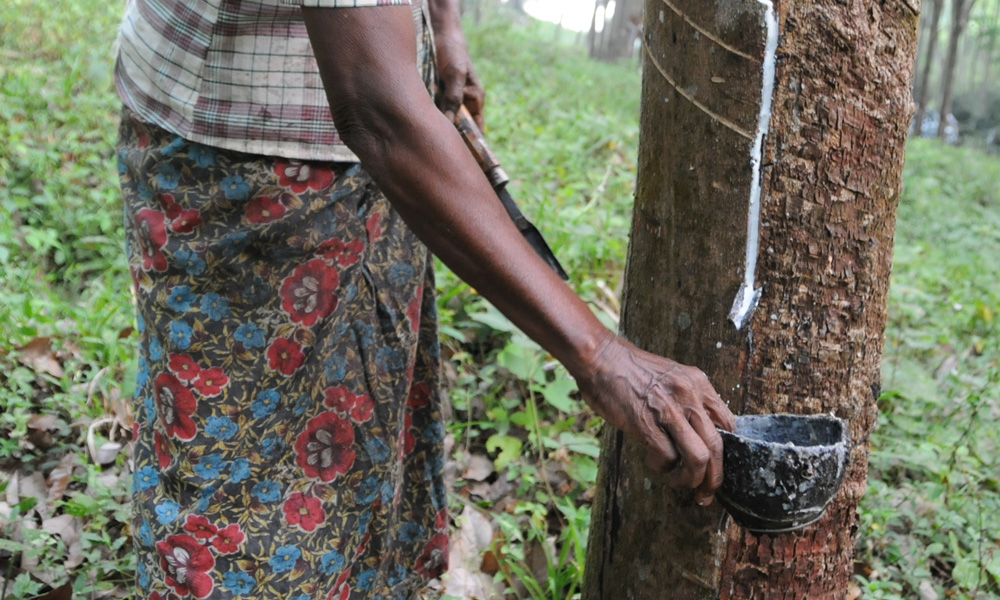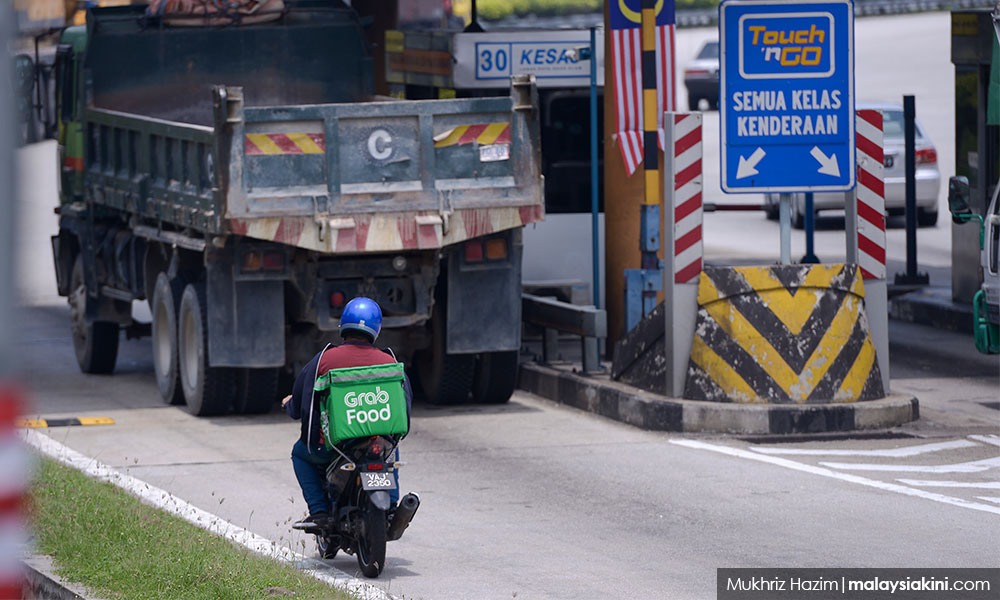
QUESTION TIME | Dear Dr M,
I read with consternation and dismay how you urged civil servants to help lift sections of the rakyat out of poverty. Here’s the gist of what you said, from Malaysiakini:
"Do not wait for the government's assistance as this would make us dependent on the government, and those who depend on the government, surely they are not in a secure spot. On the contrary, they would be able to increase their income through their own efforts.
"This is what the government officers need to inform the rakyat (people) from the poor community, why they need to work hard to address their problems and not to depend on financial aid from the government."
I appreciate what you are trying to do - to get the poor to do something about their own state, but they have also been badly let down by previous governments, including your own previous 22-year stint as PM.
During this period, the New Economic Policy or NEP, introduced post the racial riots in 1969, focused much more on bumiputera ownership of corporate wealth, with less emphasis on the two key prongs, which are eradication of poverty irrespective of race and eliminating the identification of race with occupation.
The NEP also clearly stated that redistribution of wealth, which benefited the rich bumiputeras, was to come out of increased wealth. This was blatantly disregarded when, routinely, large firms had to divest up to 30 percent of their equity to bumiputera investors nominated by the International Trade and Industry Ministry - the beginnings of the politics of patronage.
This, and other similar things saw the rise of a wealthy Malay upper and middle class, but those further down the ladder did not benefit as much from the huge increase in economic growth since independence, which exceeded eight percent in most years.

Dear Dr M, to get a grip on the poverty problem, poverty needs to be redefined and quantified, and a plan and programme of action activated to systematically tackle this problem. Here are some measures which should be taken.
1. Establish the right poverty level. We all know that the government-set poverty level of just under RM1,000 per household per month is ridiculously low - five people living on just over RM30 a day, including rental - you’ve got to be kidding. No wonder poverty is officially non-existent. You need to have a handle on the problem if you want to solve it. If you go by the government-set poverty level, we have no problem.
2. Pay fair wages for labour. Next look at our minimum wage level - RM1,100 a month. Even that is not followed by an estimated 30 percent of employers. You may not be able to increase this to a fair level immediately, but surely you can increase this figure, say, by about RM100 per month every year to reach, say, RM1,500 in five years. Remember, no matter how hard the salaried worker works, he can’t increase his wages.

3. Restrict and eventually stop foreign labour. Dear Dr M, you were directly responsible for this when you allowed untrammelled import of Indonesian labour into the plantation sector in the Eighties. Predictably, it spilt over into other sectors, severely reducing the wages of Malaysian labour. You must have a plan for stopping the import of foreign labour, say over five years. If you don’t do this, the price of Malaysian labour will forever be depressed.
4. Focus on increasing wealth, not redistributing it. Why are you still obsessed with creating rich bumiputera? When you do other things, they will become rich. There are state-owned institutions that will keep wealth in trust for them, instead of cashing out, as many of them did when they were given that 30 percent. Focus instead on growing the wealth of the country and ensuring that every person in the line of production gets a fair cut. It’s clear that employers are getting too much, so that even as we create billionaires, the gap between the rich and poor is widening.
5. Encourage investments which have more value-added. Both local and foreign investments which are more capital and skills intensive need to be encouraged. Assembly industries with imported cheap Bangladeshi labour, for instance, much of it illegal and even trafficked, does nothing for the country, except for the bulging pockets of the already rich.
6. Remove the impediments to investment - big or small. Go to the ground and talk to small businesses - your corner shop, the neighbourhood cafe, the nasi lemak stalls. Ask them about the many layers they have to grease to merely make an income. And then unleash the MACC to get rid of these blood-sucking leeches. Concurrently, streamline procedures, put in place specific conditions to fulfil and once they are fulfilled, make sure approvals are given.
7. Encourage small entrepreneurship. Remember, food is big business A good cook will never go hungry because you can sell your food. Give housewives small loans to set these up and ensure there are no kickbacks. What about homestays and the like? They can also promote tourism. Also, think in terms of arts and crafts.

8. Allow the gig economy to take root. The gig economy, which harnesses idle human and other resources to provide economic functions, should be allowed to take root and blossom without bureaucratic hindrances. Look at the controls put on ride-hailing and food delivery. Dear Dr M, have you seen who is most affected by these restrictions? Why are your ministers such as Anthony Loke so bent on regulating them? This is the future. Just ensure the playing field is level and there is no exploitation so that people can get extra income from their own labour and assets such as cars, motorbikes and houses. The gig economy is the future - embrace it now.
9. Remove protective taxes. Just because of your Proton and other national cars, we have to pay two to three times for cars, bikes and trucks compared to other countries. Our cars are more expensive than those in the US, Europe and Australia. Why? Imagine the cost to all of those poor people and the disposable income you can release. You need to remove all protective taxes so we can benefit from the low cost of production elsewhere. And you need to encourage industries which have a comparative advantage that can compete on the world stage. You need to plug into everything good the world economy has to offer.
10. For goodness sake, improve the quality of education. This, although No 10, is probably the most important. Successive governments, including yours two times over, have only paid lip-service to this. Make it relevant, make it good - do the basics such as reading, writing and arithmetic and put in a proper dose of English to improve assimilation of skills - most cutting edge work is done in English. Don’t listen to the language extremists, be they Malay, Chinese or Tamil. Recognise the importance of English. Put a lot of emphasis on teacher training and move to full session schools. This section deserves a whole comment all to itself.
Dear Dr M, if you are really interested in doing something solid about alleviating poverty, you must implement every single one of these measures suggested and then some more. If you have done these, then you will be entitled to criticise the poor for not working hard enough.
Not until then.
P GUNASEGARAM is the editor-in-chief of Focus Malaysia. He says taking a racial slant towards poverty colours it unequally - only equal opportunities can be provided by policy, not outcomes. - Mkini



No comments:
Post a Comment
Note: Only a member of this blog may post a comment.